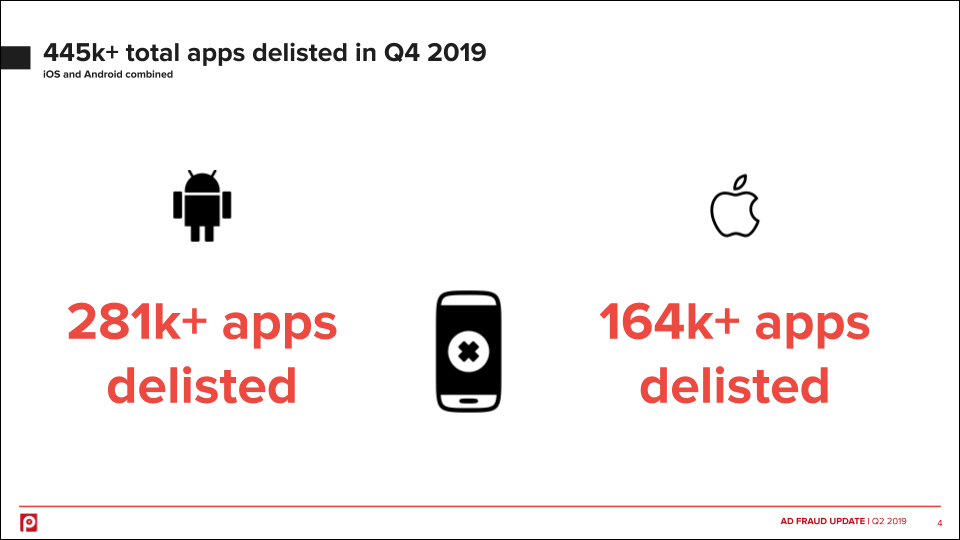
Pixalate has released new research into the hundreds of thousands of mobile apps that were delisted in Q4 2019 across the Google Play Store and the Apple App Store.
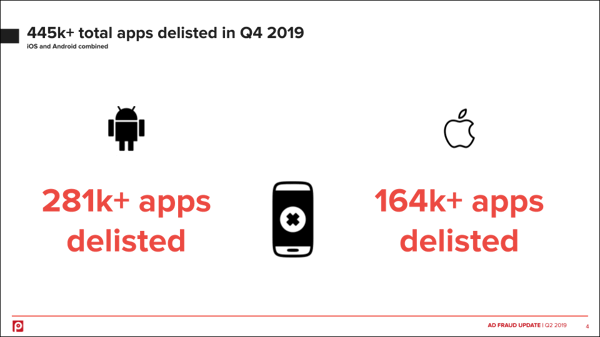
Nearly 1,500 Android apps that were delisted in Q4 2019 had over 1 million downloads prior to delisting, according to Pixalate’s research. Over 200 of those apps had over 5 million downloads:
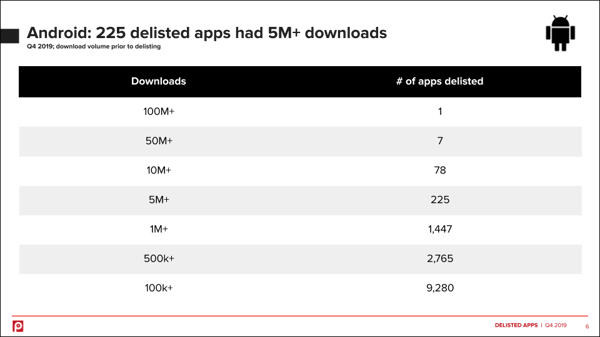
On iOS, over 400 of the delisted apps had over 5,000 user ratings prior to delisting, and 244 of the delisted apps had over 10,000 ratings.
Here are the top 10 most popular Android apps (based on downloads) that were delisted in Q4 2019:
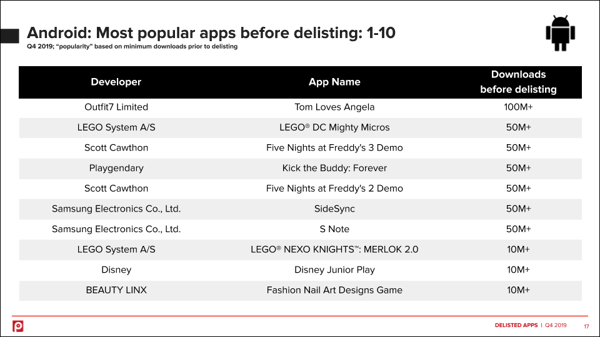
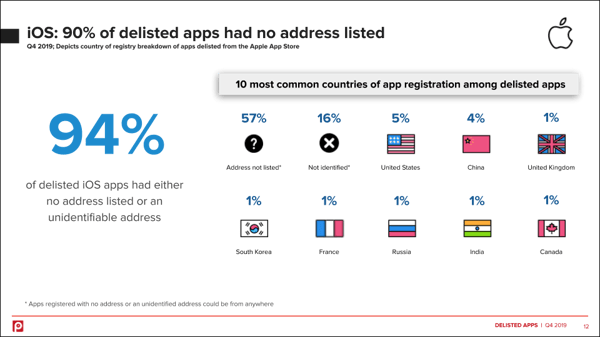
73% of delisted Android apps had either no address listed or an unidentifiable address.
Among delisted iOS apps, the number was even higher, as 94% of apps delisted from the Apple App Store had either no address listed or an unidentifiable address.
Over half (57%) of delisted Android apps had at least one “dangerous permission,” as defined by Google.
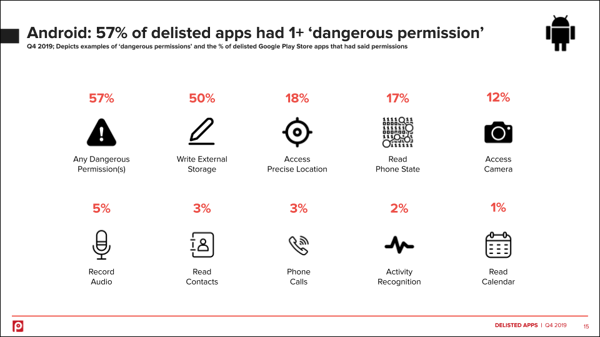
On Android, eight different developers had over 500 apps delisted in Q4 2019, while two iOS developers had over 1,000 apps delisted:
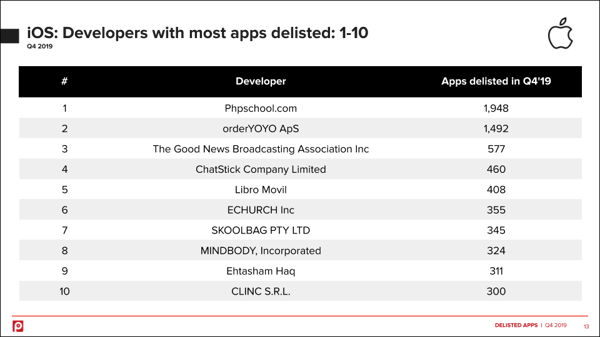
Earlier this year, Google removed over 500 apps for “disruptive ads.” Pixalate research revealed that over 75% of those apps had the “System Alert Window” permission, which Google’s documentation says “very few apps should use.”
Additional Pixalate research revealed that 5% of Android mobile programmatic ads went to delisted apps in Q3 2019. For advertisers, this underscores the importance of staying on top of app delistings — particularly when popular apps are delisted.
Inside our delisted apps report, you’ll find:
Disclaimer
The content of this blog reflects Pixalate's opinions with respect to the factors that Pixalate believes can be useful to the digital media industry. Any data shared is grounded in Pixalate's proprietary technology and analytics, which Pixalate is continuously evaluating and updating. Any references to outside sources should not be construed as endorsements. Pixalate's opinions are just that, opinions, which means that they are neither facts nor guarantees.
In the context of this blog, "delisted apps" include apps delisted on or after October 1, 2019 and not on the Google Play Store or Apple App Store as of December 31, 2019. The delisting of an app does not indicate the entity or person that initiated the delisting action, i.e. Google, Apple, or the app developer, as that information is not generally available publicly. Additionally, the mere fact that an app has been delisted does not necessarily imply that one should draw negative inferences regarding the app or its developer. It is important to note that there are many relatively benign reasons for the delisting of apps (e.g., rebranding, app replacement, change in business direction, or a business transaction involving the app and/or the app’s developer).
*By entering your email address and clicking Subscribe, you are agreeing to our Terms of Use and Privacy Policy.
These Stories on Mobile
*By entering your email address and clicking Subscribe, you are agreeing to our Terms of Use and Privacy Policy.

Disclaimer: The content of this page reflects Pixalate’s opinions with respect to the factors that Pixalate believes can be useful to the digital media industry. Any proprietary data shared is grounded in Pixalate’s proprietary technology and analytics, which Pixalate is continuously evaluating and updating. Any references to outside sources should not be construed as endorsements. Pixalate’s opinions are just that - opinion, not facts or guarantees.
Per the MRC, “'Fraud' is not intended to represent fraud as defined in various laws, statutes and ordinances or as conventionally used in U.S. Court or other legal proceedings, but rather a custom definition strictly for advertising measurement purposes. Also per the MRC, “‘Invalid Traffic’ is defined generally as traffic that does not meet certain ad serving quality or completeness criteria, or otherwise does not represent legitimate ad traffic that should be included in measurement counts. Among the reasons why ad traffic may be deemed invalid is it is a result of non-human traffic (spiders, bots, etc.), or activity designed to produce fraudulent traffic.”

